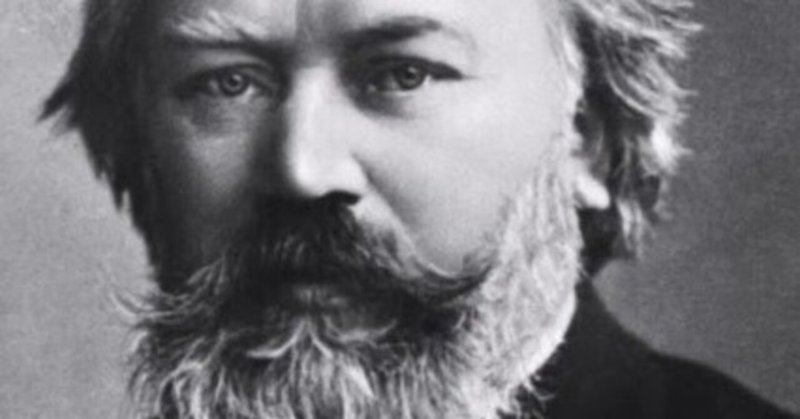
死者の安息ではなく、生者の安らぎと希望をテーマにしたブラームスのドイツ・レクイエム
ブラームスのドイツ・レクイエムは、母親の死をきっかけに作曲されました。 ブラームスは母親の死に深く悲しみ、その感情を音楽で表現しました。 この作品は、歌詞としてドイツ語の聖書テキストを選択している点で、伝統的なカトリックのレクイエムとは異なります。 ブラームスが死者の安息ではなく、生者の安らぎと希望をテーマにしたいと考えていたからです。 この作品はブラームスの最高傑作の一つとして今でも多くの人に愛されています。

ブラームスのドイツ・レクイエムを聴き、彼の母親に敬意を表します。 彼の母親は、彼の音楽的才能を発見し、サポートし、励ましてくれる素晴らしい人でした。 母親の死は彼にとって大きな悲しみでしたが、彼はその悲しみを音楽に注ぎ込みました。 彼は母親の思い出と教えを思い出し、音楽を通じて他の人たちと共有しました。 彼の音楽は私たちに慰めと希望を与えてくれます。 私たちは彼の音楽を聴き、彼の母親に感謝します。 彼のお母さんが天国で幸せであることを祈っています。

こんにちは。今日はブラームスのドイツ・レクイエムについてお話したいと思います。 この曲は私が愛するクラシック音楽の中で最も感動的な曲の一つです。 この作品がどんな作品なのか、なぜ好きなのか、そしてこの作品の意味やメッセージについてもう少し詳しく説明していきたいと思います。
まず、これはレクイエムと呼ばれる音楽のジャンルです。 レクイエムとは、死者を追悼するために作曲された音楽です。 カトリック教会では死者の成仏を祈る儀式があり、その儀式で使われる音楽をレクイエムといいます。 レクイエムという言葉自体は「主よ、安らかに眠ってください」という意味です。
レクイエムというジャンルは、古くから多くの作曲家によって使用されてきました。 有名なのはモーツァルト、ヴェルディ、フォーレなどです。 これらの作曲家はカトリック教会の伝統に基づいてレクイエムを作曲しました。 つまり、ラテン語で書かれた典礼文を歌詞とし、死者への祈り、裁き、安息などがテーマとなっていました。
しかしブラームスは違います。 ブラームスはプロテスタントであり、カトリック教会の伝統に縛られることなく自由にレクイエムを作曲しました。 彼はドイツ語訳聖書からお気に入りの一節を選び、死者ではなく生者のために音楽を作曲しました。 彼のテーマは、死者の残りの部分ではなく、生きている人の慰めと希望でした。
では、なぜブラームスはこんなことをしたのでしょうか? それは母親の死が彼に大きな影響を与えたからです。 ブラームスは 1865 年に母親を亡くしました。ブラームスは母親に愛されて育ち、彼の音楽的才能を見いだしたのも母親でした。 彼女の母親の死は彼にとって大きなショックでした。 彼はその悲しみを自分の音楽に反映させることに決めました。 彼は母親のためにレクイエムを作曲することに決めた。
しかし、彼はカトリック教会の伝統的なレクイエムではなく、独自のレクイエムを作成しました。 彼は、母親は天国に行ったので、母親に祈る必要はないと信じていました。 彼は、母親の遺産と母親が彼に教えてくれたことに従って生きることが重要であると信じていました。 彼は、母親の死によって生じた悲しみと痛みを乗り越えられるように、自分自身と他の人たちに慰めと希望を与えるために音楽を作りました。
こうして作られたブラームスのドイツ・レクイエムは7つの楽章から構成されています。 各楽章には聖書のさまざまな部分から引用されたテキストが含まれています。 これらの文章はすべてドイツ語で書かれており、すべて生きている人々に向けて書かれています。 例えば、「泣いている人はみな慰められます」、「あなたに平安を与えます」、「私はあなたとともにいます」、「私たちは主を信頼します」などです。 「死者は主のうちに生きる」または「主よ、私たちを祝福してください」。
この言葉は私たちにも心に響きます。 私たちは皆、何らかの悲しみ、痛み、不安、恐怖を抱えて生きています。 私たちは皆、何らかの慰め、希望、平和、信頼、祝福を求めて生きています。 私たちは皆、愛する人や大切な人を失ったことがあるかもしれません。 私たちは皆、いつか死という現実に直面するかもしれません。
ブラームスのドイツ・レクイエムは私たちを助けてくれる音楽です。 この音楽は私たちを悲しみや痛みから解放してくれると約束しています。 この音楽は私たちに希望、平和、信頼、そして祝福を与えてくれます。 この音楽は、神、私たちの愛する人たち、そして私たちの愛する人たちがいつも私たちとともにいることを教えてくれます。
Brahms's German Requiem, whose theme is not the rest of the dead, but the peace and hope of the living.
Brahms's German Requiem was composed in the wake of his mother's death. Brahms was deeply saddened by his mother's death and expressed his feelings in music. This work differs from traditional Catholic requiems by choosing German Bible texts as its lyrics. This is because Brahms wanted the theme to be the comfort and hope of the living rather than the rest of the dead. This work is still loved by many people as one of Brahms's masterpieces.
Condolences:
Today we listen to Brahms' German Requiem and pay homage to his mother. His mother was a wonderful person who discovered, supported, and encouraged his musical talent. His mother's death was a great sadness for him, but he channeled that sadness into his music. He remembered his mother's memories and teachings and shared them with others through his music. His music also gives us comfort and hope. We listen to his music and thank his mother. I pray that his mother is happy in heaven.

Hello. Today, I would like to talk about Brahms's German Requiem. This piece is one of the most moving pieces of classical music that I love. I would like to explain in a little more detail what this work is, why I like it, and the meaning and message of this work.
First, let's talk about what this piece is about.This is a genre of music called a requiem. A requiem is music composed to commemorate the dead. In the Catholic Church, there is a ceremony to pray for the dead to go to heaven, and the music used in this ceremony is called a requiem. The word requiem itself means "Lord, rest in peace."
The Requiem genre has been used by many composers since ancient times. Famous ones include Mozart, Verdi, and Faure. These composers composed requiems in the tradition of the Catholic Church. In other words, we used liturgical texts written in Latin as lyrics, and the themes included prayers for the dead, judgment, and rest.
But Brahms is different. Brahms was a Protestant, and he was free to compose his Requiem without being bound by the traditions of the Catholic Church. He chose his favorite passages from the German translation of the Bible, and he composed music for the living, not the dead. His theme was the comfort and hope of the living rather than the rest of the dead.
So why did Brahms do this? That's because his mother's death had a big impact on him. Brahms lost his mother in 1865. He grew up loved by his mother, and her mother was the one who discovered his musical talent. Her mother's death was a huge shock to him. He decided to channel that sadness into his music. He decided to compose a requiem for his mother.
However, he created his own requiem rather than the traditional requiem of the Catholic Church. He believed that her mother had gone to heaven, and that there was no need to pray to her mother. He believed it was important to live by the legacy of her mother and what she taught him. He created music to give himself and others comfort and hope so that they could overcome the grief and pain created by his mother's death.
Brahms's German Requiem, created in this way, consists of seven movements. Each movement has text taken from a different part of the Bible. All these texts are written in German, and all are addressed to living people. For example, "Everyone that weeps will be comforted," "I give you peace," "I am with you," and "In the Lord we trust." "The dead shall live in the Lord," or "Lord, bless us."
These words resonate with us as well. We all live with some kind of sadness, pain, anxiety, or fear. We all live in search of some kind of comfort, hope, peace, trust, and blessings. All of us may have lost someone we love or care about. We all may face the reality of death at some point.
Brahms' German Requiem is music that helps us. This music promises to free us from sadness and pain. This music gives us hope, peace, trust, and blessings. This music teaches us that God, our loved ones, and our loved ones are always with us.

よろしければサポートお願いします! いただいたサポートはクリエイターとしての活動費に使わせていただきます!
